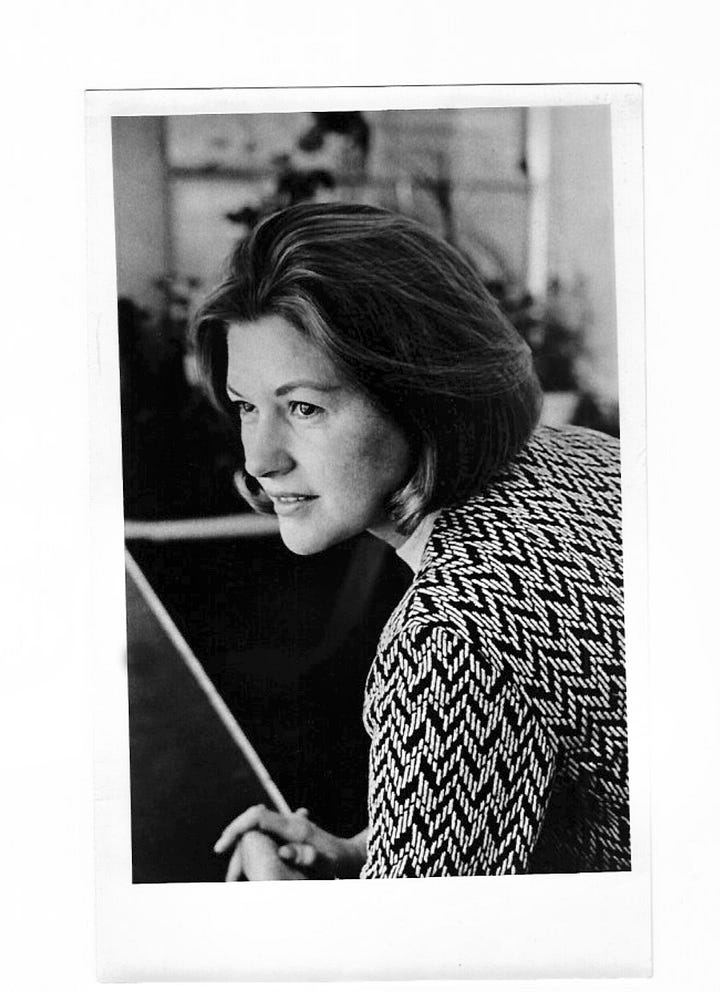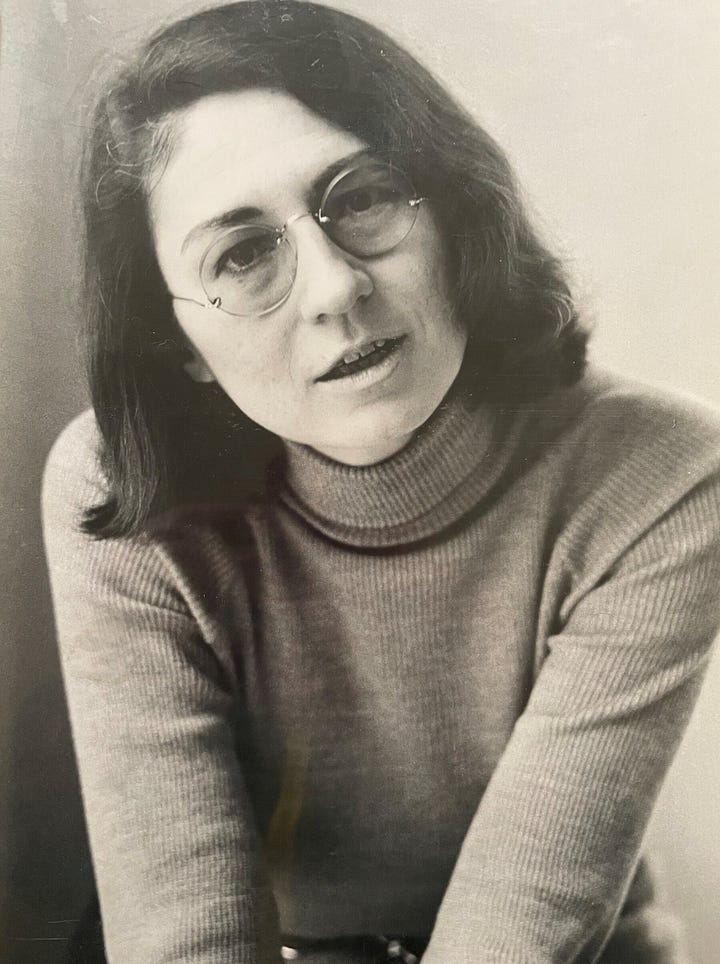Women in journalism, or: Why You Should Read the Style Section
Monday reading #2
I’m hoping to write more regularly, and I thought a weekly email with reading recommendations might be a nice place to start. Please forward this to anyone who might be interested and, if you want to support my efforts to do more with Well, Actually, consider a paid subscription! Either way, I appreciate you.
Today I’m recommending two obituaries of former Times journalists: Rita Reif, who died last month at 94, and Dolores Alexander, who died in 2008 and was the subject of one of the paper’s periodic “Overlooked No More” obits.


You might recall that I have long been interested in the work of women in journalism in the ‘50s and ‘60s, because they so often made their names with beginnings in news genres they didn’t particularly like: the women’s pages, or, as The New York Times had it, family, food, fashion, and furnishings.
Rita Reif spent a couple of years doing paste-up layout work and clerking in the paper’s archives before moving to the women’s department in 1953. Like many of her peers, she had wanted to cover a subject that was reserved for male reporters only, so she made furnishing and interior design her beats, to great professional effect. Later, as an arts and antiques writer from 1972 until the late 1990s—a post she secured in pet because of the expertise she had developed as a women’s pages reporter—she covered the dramatic highs and lows of the art world. There are lots of examples of her work linked in the obit, but here’s just one early piece: It was she who determined the origin of the famous bed in the White House’s Lincoln Bedroom.
Dorlores Alexander, who went on to become a landmark figure in the second wave, had a similar early trajectory. She began her career as a journalist. At the Times, she worked as a reporting intern—barred from the more coveted role of “copy boy”—and handled female-type assignments, to cover parades or, you know, feature-type stuff,” at The Newark Evening News. newsday’s fledgling Style section became a refuge (though as far as I can tell it was “feature-type stuff” with a more palatable name, as was increasingly the case across the industry). She left journalism to work within the burgeoning feminist movement—first, as the executive director of NOW and, later, in the Women Against Pornography movement. She also opened a feminist restaurant, Mother Courage.
For all their frustration and sometimes disdain, women in journalism in these roles produced lively cultural journalism in the years before men called it the New Journalism and claimed it as their turf. (Reif’s story about how Wollman Rink was engineered—and the revelation that flared skirts produce more heat on the ice—would be at home today in the Times Metro section or Outside or … a lot of other places!) The fact that these maligned beats proved so productive for, and were so often part of the professional trajectory of, the college-educated women who entered the workforce in the 1950s and early 1960s is an overlooked and important part of media history. Some of the most successful journalists of the 1970s began their careers in the women’s pages; other alumnae of the beat, as Alexander shows, went on to other vital professional and social careers. All of this has profound implications for how we think about “women’s media” today.
See you next Monday!


Thank you for sharing all this amazing info! Dolores Alexander is so fascinating for me. I did a research project of Genevieve Tabouis, a French diplomatic journalist, focused on her work surrounding WWII. One of the things that most disappointed me (although she was still such an incredible figure) was that while she was so fully aware of the impact of gender and patriarchy, she never got super involved in the women’s movement in France or the U.S. It’s so wonderful to hear about other female journalists who did embrace feminism. And a very interesting connection to Anne Helen Peterson’s most recent post in the Culture Study Interview Series with Dr. Alex D. Ketchum, on feminist restaurants which even mentioned Mother Courage! Link here: https://open.substack.com/pub/annehelen/p/the-fascinating-history-of-feminist?r=2n7mh&utm_medium=ios&utm_campaign=post